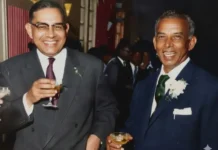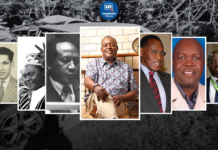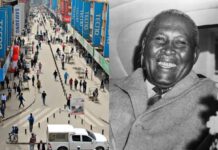In any healthy democracy, we rely on brave men and women to speak up when power goes wrong. These are the whistleblowers. The ones who risk careers, reputations, and sometimes even their lives to bring truth to light.
But what happens when someone waves the whistle not for the people, but for their wounded pride?
Since his impeachment in 2024, former Deputy President Rigathi Gachagua has not gone quietly. His prime target: the National Intelligence Service (NIS).
During his first public spat with President William Ruto, Gachagua held a press conference in Mombasa, over 400 kilometers away, and just thirty minutes after his boss condemned the awful Gen Z protests that almost burnt Parliament to the ground.
He took aim at the Director General, Noordin Haji, calling him a business tourist and a noob in the intelligentsia. Noordin slept on the job; he barked. Called on the president to get rid of the man who waded through ranks within the agency to the summit.
But what was his beef? Gachagua claimed senior sleuths had been reassigned to boring desk jobs, and other officers moved into ministries, leaving the spy glass unattended. And for this, He wanted the Haji gone. But instead, just months later, Gachagua was impeached while he was still in the hospital.
One year later, Gachagua is back at it. This time, accusing NIS of secretly buying Subaru Foresters, vehicles synonymous with DCI undercover work. No documents, no report, no facts, just a claim tossed into the fire of public anger.
And the fire caught.
During the recent protests, a young man driving one of those very cars, not a spy, not a cop, just another Kenyan trying to get to his family, was attacked. His only crime? Driving a vehicle is now “associated with the system.”
Since then, others have quietly parked their Subarus, afraid that their ride might make them a target. This is what reckless speech does. It spills fear into the streets. It turns neighbours into suspects. It weaponizes whispers.
For decades, the NIS worked quietly in the shadows. It wasn’t perfect. Few institutions are, but it was protected from the circus of public opinion. Now, thanks to political bitterness and microphone bravado, it’s being dragged into the streets and dismantled, one speech at a time.
Let’s not mistake this for courage. Let’s not confuse a political feud with patriotic truth-telling. There’s a difference between exposing wrongdoing and inciting suspicion.
Yes, Kenyans deserve transparency. We deserve institutions we can trust. But we also deserve responsibility from those who once held the keys to the republic.
Real whistleblowers go through channels. They build cases. They protect the public — they don’t put it at risk. When someone uses classified allegations to stir public outrage, without evidence or structure, they’re not saving the nation. They’re shaking its very foundation.
As Kenya faces rising protests, inflation, and unrest, we can’t afford to have our intelligence services treated like campaign punching bags. Today it’s Subaru drivers. Tomorrow it could be anyone caught in a narrative they didn’t ask to join.
This country is fragile. And it needs more statesmen, fewer fire-starters.



















